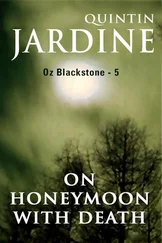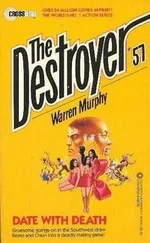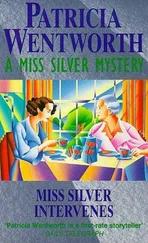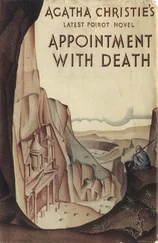John Donne - Devotions Upon Emergent Occasions; Together with Death's Duel
Здесь есть возможность читать онлайн «John Donne - Devotions Upon Emergent Occasions; Together with Death's Duel» — ознакомительный отрывок электронной книги совершенно бесплатно, а после прочтения отрывка купить полную версию. В некоторых случаях можно слушать аудио, скачать через торрент в формате fb2 и присутствует краткое содержание. Издательство: Иностранный паблик, Жанр: foreign_prose, foreign_religion, Философия, foreign_psychology, foreign_antique, на английском языке. Описание произведения, (предисловие) а так же отзывы посетителей доступны на портале библиотеки ЛибКат.
- Название:Devotions Upon Emergent Occasions; Together with Death's Duel
- Автор:
- Издательство:Иностранный паблик
- Жанр:
- Год:неизвестен
- ISBN:нет данных
- Рейтинг книги:4 / 5. Голосов: 1
-
Избранное:Добавить в избранное
- Отзывы:
-
Ваша оценка:
- 80
- 1
- 2
- 3
- 4
- 5
Devotions Upon Emergent Occasions; Together with Death's Duel: краткое содержание, описание и аннотация
Предлагаем к чтению аннотацию, описание, краткое содержание или предисловие (зависит от того, что написал сам автор книги «Devotions Upon Emergent Occasions; Together with Death's Duel»). Если вы не нашли необходимую информацию о книге — напишите в комментариях, мы постараемся отыскать её.
Devotions Upon Emergent Occasions; Together with Death's Duel — читать онлайн ознакомительный отрывок
Ниже представлен текст книги, разбитый по страницам. Система сохранения места последней прочитанной страницы, позволяет с удобством читать онлайн бесплатно книгу «Devotions Upon Emergent Occasions; Together with Death's Duel», без необходимости каждый раз заново искать на чём Вы остановились. Поставьте закладку, и сможете в любой момент перейти на страницу, на которой закончили чтение.
Интервал:
Закладка:
I must here look so far back, as to tell the reader that at his first return out of Essex, to preach his last sermon, his old friend and physician, Dr. Fox—a man of great worth—came to him to consult his health; and that after a sight of him, and some queries concerning his distempers he told him, "That by cordials, and drinking milk twenty days together, there was a probability of his restoration to health"; but he passionately denied to drink it. Nevertheless, Dr. Fox, who loved him most entirely, wearied him with solicitations, till he yielded to take it for ten days; at the end of which time he told Dr. Fox, "He had drunk it more to satisfy him, than to recover his health; and that he would not drink it ten days longer, upon the best moral assurance of having twenty years added to his life; for he loved it not; and was so far from fearing Death, which to others is the King of Terrors, that he longed for the day of his dissolution."
It is observed, that a desire of glory or commendation is rooted in the very nature of man; and that those of the severest and most mortified lives, though they may become so humble as to banish self-flattery, and such weeds as naturally grow there; yet they have not been able to kill this desire of glory, but that like our radical heat, it will both live and die with us; and many think it should do so; and we want not sacred examples to justify the desire of having our memory to outlive our lives; which I mention, because Dr. Donne, by the persuasion of Dr. Fox, easily yielded at this very time to have a monument made for him; but Dr. Fox undertook not to persuade him how, or what monument it should be; that was left to Dr. Donne himself.
A monument being resolved upon, Dr. Donne sent for a carver to make for him in wood the figure of an urn, giving him directions for the compass and height of it; and to bring with it a board, of the just height of his body. "These being got, then without delay a choice painter was got to be in readiness to draw his picture, which was taken as followeth.—Several charcoal fires being first made in his large study, he brought with him into that place his winding-sheet in his hand, and having put off all his clothes, had this sheet put on him, and so tied with knots at his head and feet, and his hands so placed as dead bodies are usually fitted, to be shrouded and put into their coffin, or grave. Upon this urn he thus stood, with his eyes shut, and with so much of the sheet turned aside as might shew his lean, pale, and death-like face, which was purposely turned towards the East, from whence he expected the second coming of his and our Saviour Jesus." In this posture he was drawn at his just height; and when the picture was fully finished, he caused it to be set by his bedside, where it continued and became his hourly object till his death, and was then given to his dearest friend and executor Dr. Henry King, then chief Residentiary of St. Paul's, who caused him to be thus carved in one entire piece of white marble, as it now stands in that Church; and by Dr. Donne's own appointment, these words were to be affixed to it as an epitaph:—
And now, having brought him through the many labyrinths and perplexities of a various life, even to the gates of death and the grave; my desire is, he may rest, till I have told my reader that I have seen many pictures of him, in several habits, and at several ages, and in several postures: and I now mention this because I have seen one picture of him, drawn by a curious hand, at his age of eighteen, with his sword, and what other adornments might then suit with the present fashions of youth and the giddy gaieties of that age; and his motto then was—
"How much shall I be changed
Before I am changed!"
And if that young, and his now dying picture were at this time set together, every beholder might say, "Lord! how much is Dr. Donne already changed, before he is changed!" And the view of them might give my reader occasion to ask himself with some amazement, "Lord! how much may I also, that am now in health, be changed before I am changed; before this vile, this changeable body shall put off mortality!" and therefore to prepare for it.—But this is not writ so much for my reader's memento, as to tell him, that Dr. Donne would often in his private discourses, and often publicly in his sermons, mention the many changes both of his body and mind, especially of his mind from a vertiginous giddiness; and would as often say, "His great and most blessed change was from a temporal to a spiritual employment"; in which he was so happy, that he accounted the former part of his life to be lost; and the beginning of it to be, from his first entering into Sacred Orders, and serving his most merciful God at His altar.
Upon Monday, after the drawing this picture, he took his last leave of his beloved study; and, being sensible of his hourly decay, retired himself to his bedchamber; and that week sent at several times for many of his most considerable friends, with whom he took a solemn and deliberate farewell, commending to their considerations some sentences useful for the regulation of their lives; and then dismissed them, as good Jacob did his sons, with a spiritual benediction. The Sunday following, he appointed his servants, that if there were any business yet undone, that concerned him or themselves, it should be prepared against Saturday next; for after that day he would not mix his thoughts with any thing that concerned this world; nor ever did; but, as Job, so he "waited for the appointed day of his dissolution."
And now he was so happy as to have nothing to do but to die, to do which he stood in need of no longer time; for he had studied it long, and to so happy a perfection, that in a former sickness he called God to witness (in his "Book of Devotions," written then), "He was that minute ready to deliver his soul into his Hands, if that[Pg xlviii] minute God would determine his dissolution." In that sickness he begged of God the constancy to be preserved in that estate for ever; and his patient expectation to have his immortal soul disrobed from her garment of mortality, makes me confident that he now had a modest assurance that his prayers were then heard, and his petition granted. He lay fifteen days earnestly expecting his hourly change; and in the last hour of his last day, as his body melted away, and vapoured into spirit, his soul having, I verily believe, some revelation of the beatifical vision, he said, "I were miserable if I might not die"; and after those words, closed many periods of his faint breath by saying often, "Thy kingdom come, Thy will be done." His speech, which had long been his ready and faithful servant, left him not till the last minute of his life, and then forsook him, not to serve another master—for who speaks like him,—but died before him; for that it was then become useless to him, that now conversed with God on earth as Angels are said to do in heaven, only by thoughts and looks. Being speechless, and seeing heaven by that illumination by which he saw it, he did, as St. Stephen, "look stedfastly into it, till he saw the Son of Man standing at the right hand of God His Father"; and being satisfied with this blessed sight, as his soul ascended, and his last breath departed from him, he closed his own eyes, and then disposed his hands and body into such a posture, as required not the least alteration by those that came to shroud him.
Читать дальшеИнтервал:
Закладка:
Похожие книги на «Devotions Upon Emergent Occasions; Together with Death's Duel»
Представляем Вашему вниманию похожие книги на «Devotions Upon Emergent Occasions; Together with Death's Duel» списком для выбора. Мы отобрали схожую по названию и смыслу литературу в надежде предоставить читателям больше вариантов отыскать новые, интересные, ещё непрочитанные произведения.
Обсуждение, отзывы о книге «Devotions Upon Emergent Occasions; Together with Death's Duel» и просто собственные мнения читателей. Оставьте ваши комментарии, напишите, что Вы думаете о произведении, его смысле или главных героях. Укажите что конкретно понравилось, а что нет, и почему Вы так считаете.
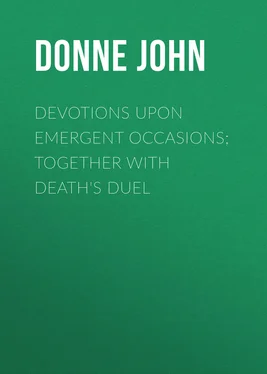

![Элизабет Ленхард - Свидание со смертью[Date With Death]](/books/79651/elizabet-lenhard-svidanie-so-smertyu-date-with-dea-thumb.webp)


